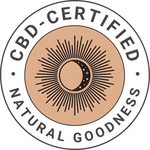Best Naturopaths in Swindon
Where can I find the best Naturopaths in Swindon?
This article aims to present some of the best naturopaths in Swindon. This non-exhaustive list is based on their reputation and the reviews left by their patients online. We will also revisit the fundamental principles of naturopathy.
Article updated on 11/21/2024

Where can we find the best naturopaths in Swindon?
- Wood Street Wellbeing, at 10 Wood Street, Swindon, this center offers naturopathy, acupuncture, and reflexology, rated 4.8/5 for its holistic approach.
- Chez Salu, at 1A Newport Street, Swindon, offers massages, reflexology, and beauty treatments, rated 4.9/5.
- Corinium Acupuncture-North Swindon, specializing in acupuncture and moxibustion, rated 5/5, located at 12 Charmind Walk, SN25 1QA.
- Holistic Therapy by Marina, at 5 Bath Road, Swindon, offers reiki, aromatic massages, and reflexology, rated 4.7/5.

Other renowned naturopaths in Swindon:
- Wood Street Wellbeing, 10 Wood Street, Swindon, offers naturopathy, acupuncture, and massages, rated 4.8/5 for its holistic approach.
- Kube Medical, multidisciplinary center in Swindon (SN1 4AN) offering chiropractic, physiotherapy, and sports massages, rated 4.9/5.
- The Holistic Hut, at 22 High Street, Wroughton, offers Swedish massages, reflexology, and energy treatments, rated 4.8/5.
- Acucare, specialist in acupuncture and Chinese medicine, located at 3 Devizes Road, Swindon, SN1 4BJ, with a rating of 4.6/5.
To summarize,
Swindon is full of other naturopaths to discover, each offering unique solutions for your well-being.

How do you define naturopathy?
Naturopathy is a global approach aimed at activating self-healing through body-mind balance. It is based on a healthy diet, exercise, stress management and natural remedies such as medicinal plants. Inspired by traditional medicines and ancient Greece, it emphasizes prevention and harmony for lasting well-being.
Which plants are most common in naturopathy?
Naturopaths use plants like chamomile for calming, ginger for digestion, echinacea for immunity and St. John's wort for mood. They also incorporate aromatherapy, hydrotherapy and nutrition. These practices aim to improve sleep, manage stress, strengthen immunity and relieve pain naturally.
How does a naturopathy session take place?
A consultation assesses the patient's general condition: diet, stress, sleep. The naturopath offers natural solutions such as medicinal plants, nutritional advice and relaxation. He can also use complementary approaches such as acupuncture, reflexology or sophrology to strengthen self-healing and promote overall balance.
